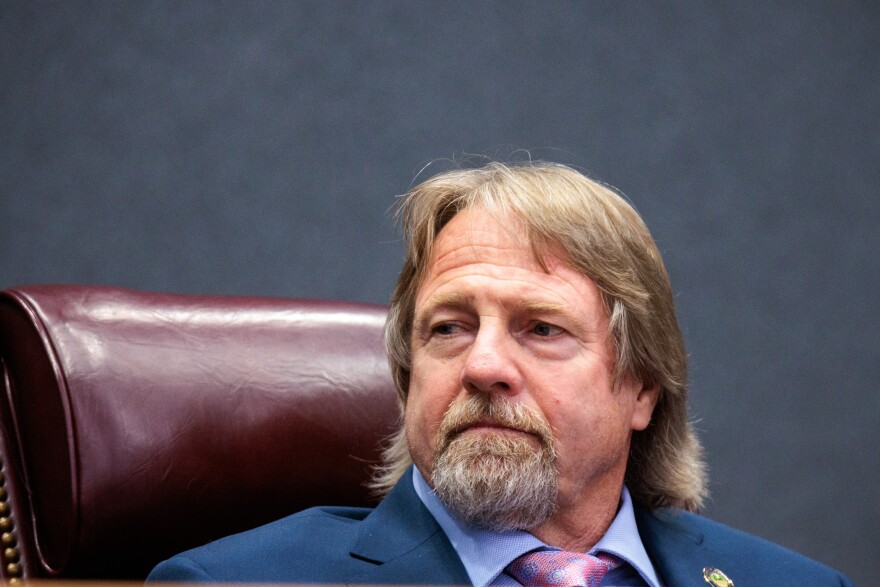Hanover supervisors unanimously struck down a proposal Wednesday to develop what would have been the largest solar farm in the county.
The project, submitted by North Carolina–based Strata Clean Energy LLC, was amended after receiving an unfavorable recommendation from the county’s planning commission in July, but residents were still apprehensive about the company’s plans.
“We understand that projects like this bring unknowns from the community for various reasons,” Morgan Quicke, senior manager of local government affairs at Strata, told the board. “But we do hope that we’ve conveyed to you tonight the responsiveness that we have shown this community for the last eight months. We’ve made this project better because of that.”
Strata was asking Hanover to rezone around 1,500 acres of timber land in the Beaverdam District, adjacent to the North Anna River, for the proposed North Anna River Solar Farm.
The solar farm would be able to produce up to 72 megawatts of electricity — enough to power over 20,000 homes for a year. The company’s original plan included 342 acres of solar arrays at the site; the revised plan reduced that coverage area to 252 acres, 17% of the proposed area.
Transmission lines have already been raised near the proposed site; they are interconnected with a Rappahannock Electric Cooperative line served by Dominion Energy. According to Quicke, Strata currently maintains 18 solar projects in the commonwealth.
Quicke said the majority of the site would be undisturbed over the project's 35-year lifespan, repopulated with native trees and plants and maintained by grazing animals and landscapers.

The project also meets or exceeds Hanover’s solar policy guidelines by increasing the setbacks of arrays from the North Anna River, improved natural buffers and stormwater management, and protection of historic roads and grave sites.
Strata’s revised plans also included a series of cash contributions to address Hanover’s ongoing capital needs: roughly $1.7 million if the project were approved, on top of approximately $300,000 in annual tax revenue from the project itself.
Quicke said the revisions came after residents voiced concerns over the impact the project would have on the community during multiple meetings with Strata representatives.
Beaverdam resident Billie Raines said she’s against any more major developments that would adversely affect the quality of the North Anna River and disturb the county’s wealth of natural resources; the county approved a proposal for a new data center campus in the district in March.
“I love Hanover,” Raines said to the board. “I just hate to think that anything on the river would be threatened, and I don’t have a lot of education about it, but I’m just begging you: Please, please don’t do this to us. We really don’t want it.”
Raines was joined by more than a dozen residents who said the project would impact Hanover’s rural character, neighboring property values, traffic and roads — as well as the area's natural resources and historic sites.
Strata project manager Laura Wilson told the board that the company did its best to strike a balance between the guidelines approved by the board and the demands of residents.
“These revisions illustrate our commitment to listening and adapting, ensuring that we address community and environmental concerns,” Wilson said.
But the board was united with Beaverdam Supervisor Jeff Stoneman, who moved to deny the project after hearing from his constituents.
Stoneman said Strata’s engineers had done a lot to address the concerns of his residents, but a solar farm may not be the “best fit for the rural character of western Hanover.”












